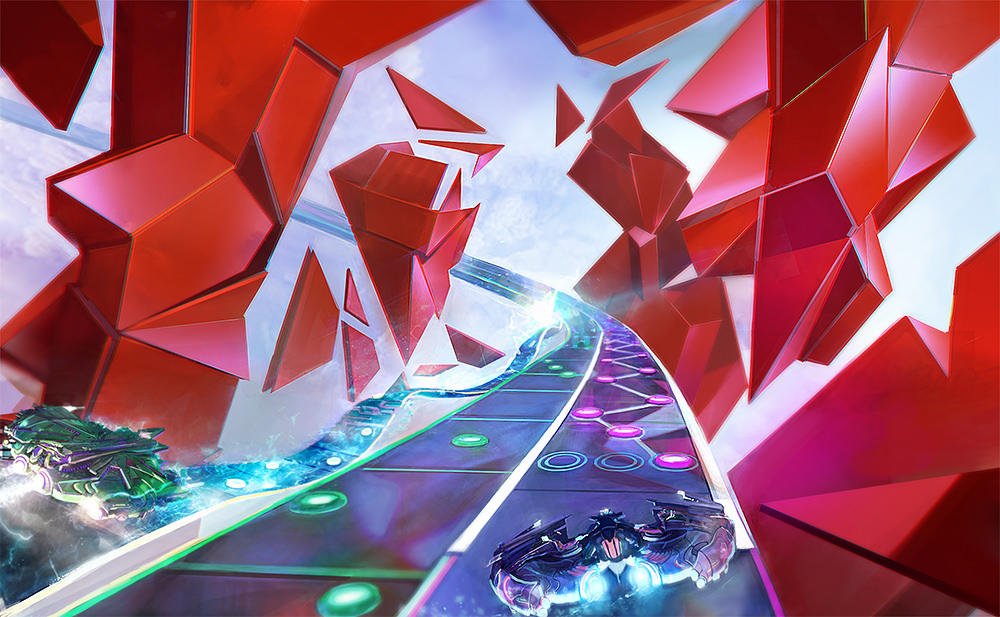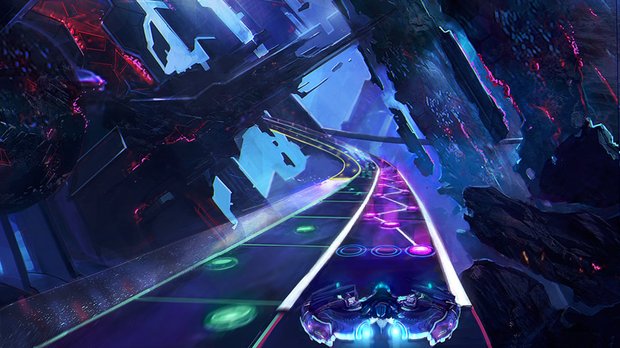What the Amplitude Kickstarter could mean for your favorite old-school franchises
It's all about managing expectations. This morning, Harmonix unveiled the Amplitude Kickstarter campaign, asking for $775,000 worth of help in rebuilding one of the studio's earliest rhythm games. And while it's awesome to see such a relatively niche game primed for a comeback, it also hints at a new use for Kickstarter: console-based revivals that are officially sanctioned by major publishers.
You see, Amplitude and its predecessor FreQuency were only on PS2, and published by Sony itself. Sony's approval is implicit to the existence of the Kickstarter, coupled with the fact that the Amplitude reboot will be exclusive to PS3 and PS4. As the Amplitude Kickstarter page puts it, it's critical that the game be "focused on Sony hardware in order to remain faithful to the core gameplay experience." And that bit about being "faithful" is key.

Plenty of spiritual successors were given life through Kickstarter, like blatant-Mega-Man-clone Mighty No. 9 or the Populous-but-not Godus. Other, more obscure franchises were able to make a comeback with their original name intact, like Carmageddon: Reincarnation and Shantae: Half-Genie Hero. And while it's still one of Harmonix's lesser-known franchises, the Amplitude brand's ties to Sony make it kind of a big deal that it's showing up on Kickstarter at all.
It's not like Harmonix is scrounging for cash; it's got the success of Rock Band and Dance Central under its belt, with two new IPs currently in development (Fantasia: Music Evolved and Chroma). Rather, this is an ingenious way for the original developers to gauge interest, without overselling the possibilities. Harmonix is smartly withholding any stretch goals until the baseline for funding is achieved, to keep the focus on the task at hand. Either the game hits its funding and gets made, or it comes up short and gets shelved. Instead of pleading for money to market a near-finished game, Harmonix can determine consumer interest with raw numbers like backer count and total funds.

Kickstarter has typically been a springboard for indie studios, but to see it as a means for supporting established companies is an interesting wrinkle. Say, hypothetically, that the stupidly rich Activision allowed a Kickstarter for a proper Spyro the Dragon platformer, or a partnership with Naughty Dog (not likely, but I can dream) to bring back a bonafide real Crash Bandicoot. Would you be offended that a publisher with such abundant resources was asking for money? Or would you take it as a real opportunity to show your support for a return to the games you remember loving back in the day?
Those examples might be a bit far-fetched, but they're not impossible if more studios treat Kickstarter as a proving ground for gamers' interest in a modern reboot. As Harmonix's John Drake puts it, "it’s a very different value proposition to someone on Kickstarter that, ‘Hey, this thing you [already] love is coming back in HD and it’s gorgeous.'" I'm cautiously optimistic that the new Amplitude will hit funding, and prove to other developers how Kickstarter can be used to fulfill longtime, fan-favorite requests. If nothing else, all this talk of Amplitude reminded me of this amazing little ditty:
Weekly digests, tales from the communities you love, and more
Lucas Sullivan is the former US Managing Editor of GamesRadar+. Lucas spent seven years working for GR, starting as an Associate Editor in 2012 before climbing the ranks. He left us in 2019 to pursue a career path on the other side of the fence, joining 2K Games as a Global Content Manager. Lucas doesn't get to write about games like Borderlands and Mafia anymore, but he does get to help make and market them.



